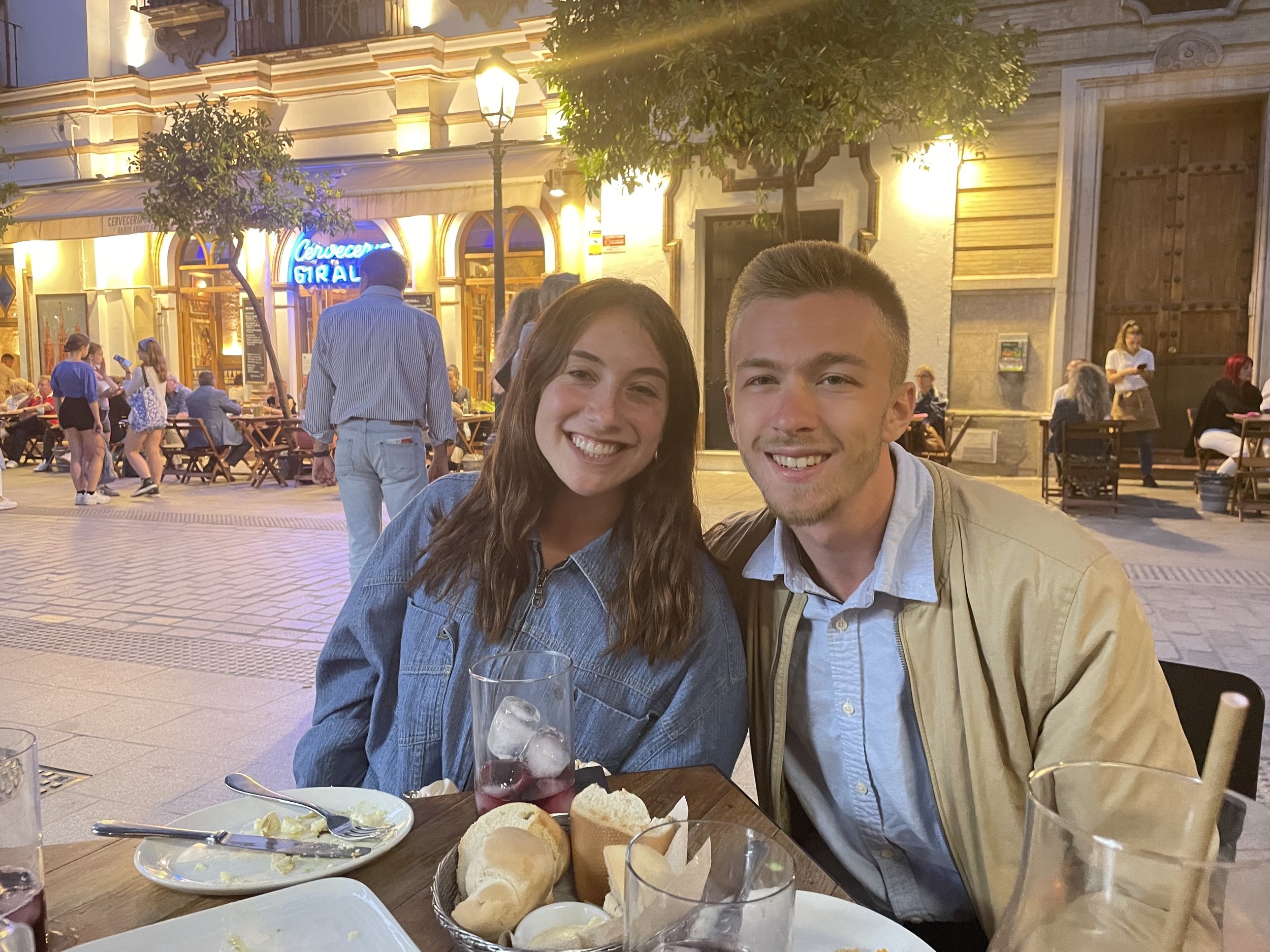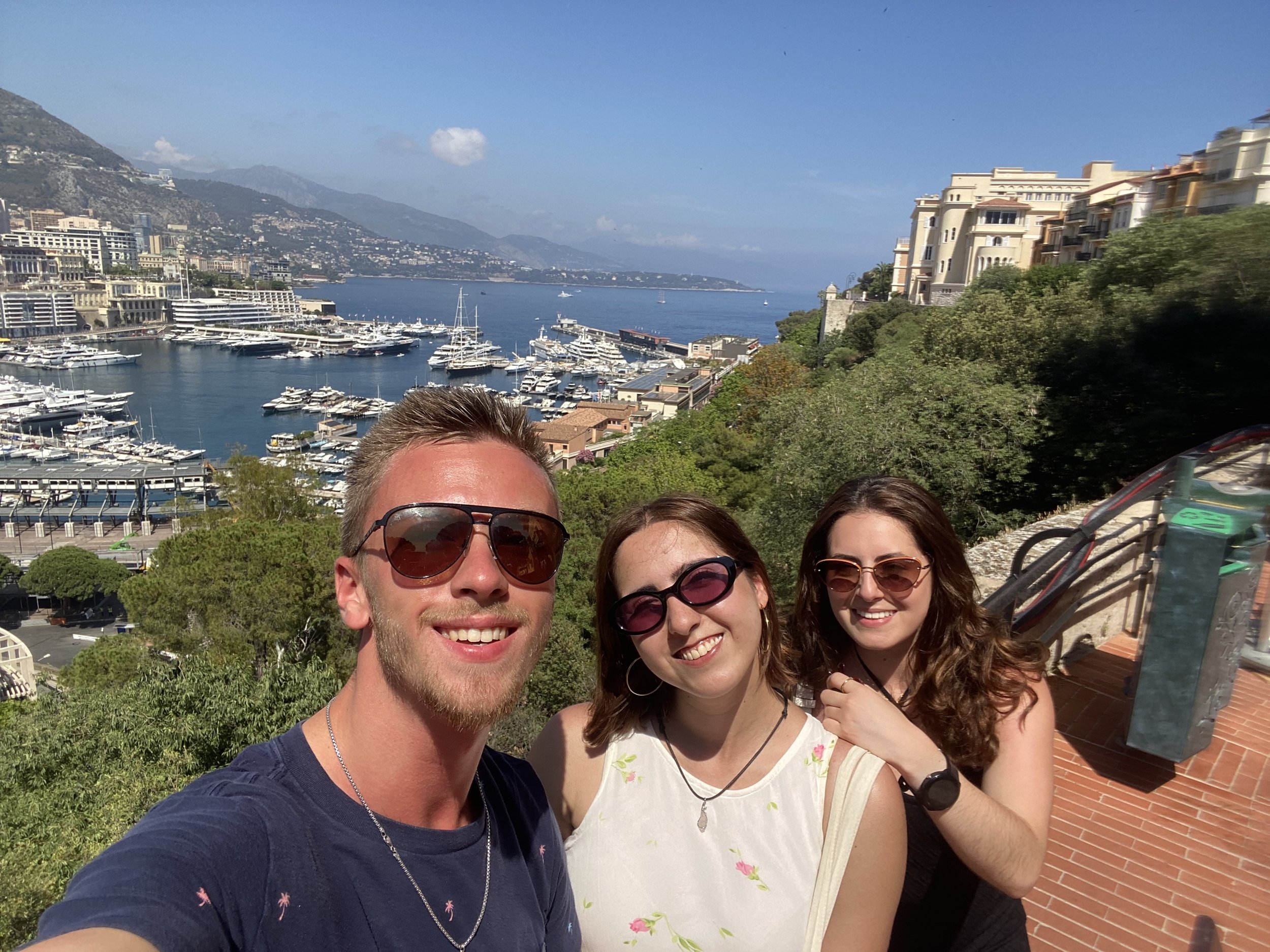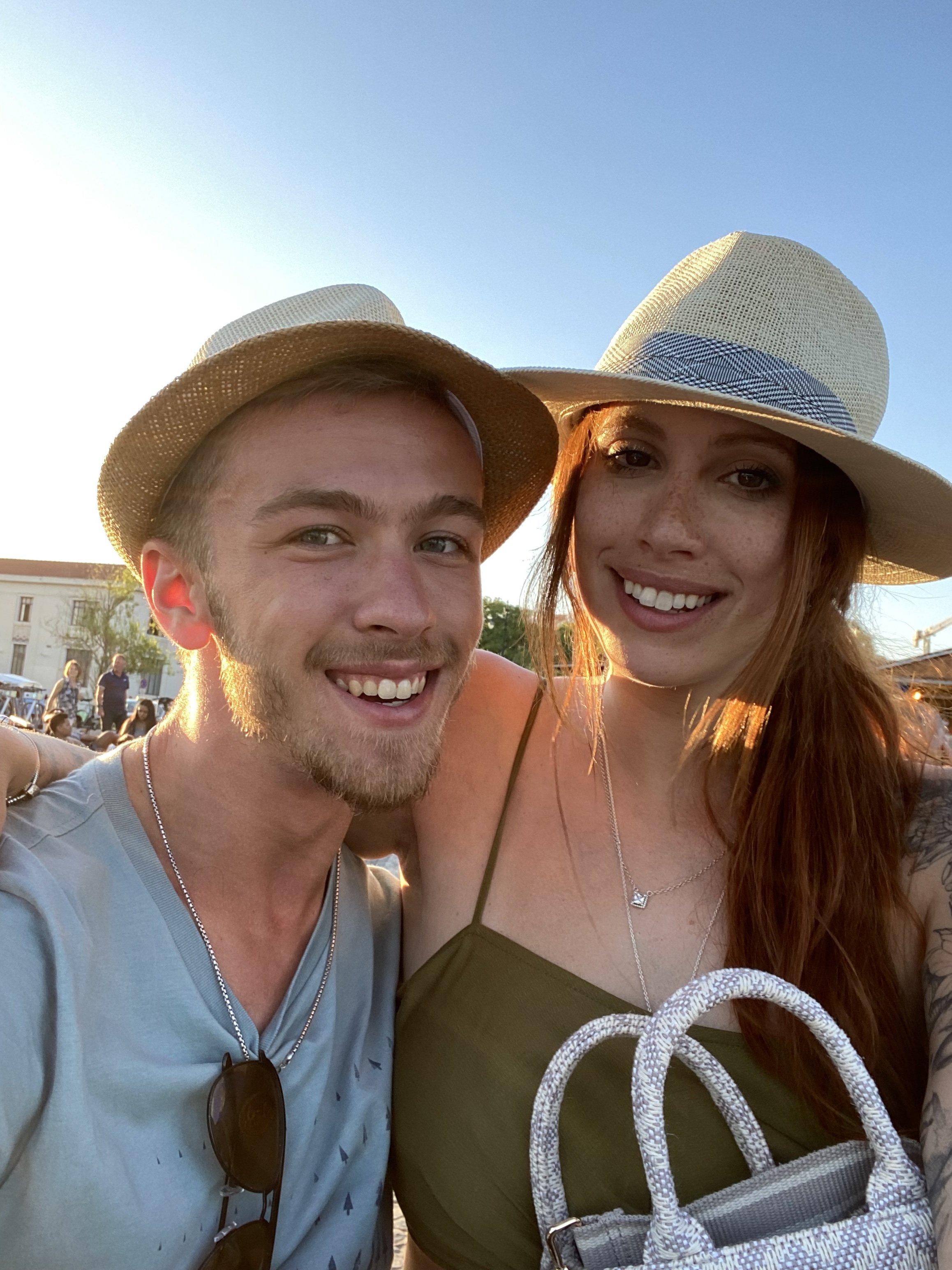Hasta Luego: How Language Brings Us Together
My recent travels to Spain, France and Portugal reminded me just how much language connects us to others.
People in Madrid don’t say adiós when they take leave of one another; they say hasta luego. As if they know exactly the next time when we will reunite. But that’s not the case. Life is too unpredictable for us to guess when we will see each other once again. More than this, the expression shows faith despite life’s uncertainty. A desire to see one another regardless of the world’s tide. A manifestation to the universe that it may bring us together again.
When my host family in Madrid said hasta luego in March 2020 on the precipice of the pandemic, there was no way they could have known if or when we would see each other again. For two long, strange, difficult years I waited for the opportunity to go back. That chance arose after my graduation from Boston University in May when my parents and I boarded a plane to Madrid using tickets they had purchased two years prior.
Home is wherever you want it to be, and in that extraordinary city I felt at home as soon as I landed. Every familiar spot was still there, like my cozy spot to read and nap in Parque Buen Retiro, paintings I’ve seen several times in Museo Nacional de Prado, and all my favorite terrazas throughout the city. So much had still changed, of course. Gran Vía station had finally re-opened, although significant construction work on the Metropolis building dulled the scene.
My new memories mixed with old ones to form moments where I was two people in two places at the same time. Everyone I knew in the city welcomed me back with open arms. The program heads of the study abroad program, a coworker from my internship, and a friend from my study abroad program all reminded me what made my experience in Madrid so special. The social connections above all else fueled the nostalgia and comfort I’ve kept for the city for years. Seeing these familiar faces and places proved that my roots from my brief time in Madrid were not fully severed.
My past and present meshed into one when I finally reunited with my host family. After a brief but meaningful hello between my real parents and my host parents, in which I did my diplomatic duties as translator, I sat down to eat tapas with my host family and their friends.
By this point, my Spanish was nearly as strong as my English and after taking a Portuguese class designed for Spanish speakers, my Portuguese was more than passable. I became my parent’s interpreter, chatting with whoever I could. Taxi drivers laughed when I told them my love for the city and concluded with de Madrid al cielo. Often I heard hablas castellano muy bien or hablas tan rápido, which I attributed to speaking like a New Yorker more than anything.
I have no biological siblings, but in Madrid I have three brothers. Although only two ate with us, we instantly fell back into the rhythm which I missed so greatly back in the United States. I asked about all the usual turmoil going on in Spain and they countered with questions about the totally normal things happening in the United States. Try explaining the Second Amendment to six Spaniards a week after a mass shooting.
We commented on how delightful the tapas tasted and I noted that the food in Europe is fresher because it lacks preservativos. They erupted in laughter and left me confused. What had I said? It turns out the Spanish word for food preservatives is conservativos. Preservativos is another word for condom. I told them I found my new favorite false cognate, and we all relished the mistake. My host brother Rodrigo reminded me how I used to struggle to keep up in long conversations or get frustrated when I forgot a word. Now he was telling me to speak slower because he couldn’t keep up!
Few moments in my life made me happier to speak Spanish than when Real Madrid knocked out puto Liverpool in the Champions League Final. I’m mad about soccer, and for years I’ve screamed A Cibeles hoping to one day storm the plaza where fans celebrate Real Madrid’s many, many, many championships. That day I did exactly that, joining with the crowd on our holy football pilgrimage, swept away in a sea of white shirts and white scarves, jumping and chanting together in ecstasy for hours. Everyone became best friends for a short while, drinking, hugging, and drinking some more, just because we support a top class club. Hangovers last one day, but memories last a lifetime.
I took a lot out of my time in Madrid of course— especially that people should work to live and not the other way around. But the biggest lesson it taught me is gratitude for my ability to connect with people in a language other than my mother tongue. A train ride to Seville brought me to Lexie, a camp friend who has known me since 2013 when I sported a Justin Bieber haircut (spare me the same name irony) and stood a foot and a half shorter. As soon as I returned from Madrid, she told me her intent to study in Spain. I supported her goal but advised her against going in the middle of a generational global pandemic.
We have spoken dozens of times over the last two years in preparation for her trip, from practice conversations and pep talks in Spanish to packing details. Meeting her in the Parque de María Luisa again brought time’s full circle to a closed loop. Finally she had done it. Living with a host family, immersing herself in a new culture, and enjoying every moment of a new lifestyle. Most Americans don’t consider how much learning languages expands our horizons.
In Paris, rather than test the trope that locals hate Americans, I used language to make my identity amorphous. I greeted everyone with bonjour and followed up in Spanish. Waiters asked where I came from and I’d tell them I was born in Madrid with a straight face and mildly offensive accented English. Somehow, a white Jewish kid from Long Island passed off as a Madrileño.
I also found out there are more Portuguese and Brazilian people in Paris than Porto (which I’ll get to). A Brazilian watch seller told me this while selling me a classy watch with a blue dial face accented by silver and gold. He must have been a good salesman because in two languages he convinced me to buy it and engraved it for me at no extra charge. On the back I immortalized Ernest Hemingway’s description of the city, for “Paris is a moveable feast.”
During the evenings I took sunset strolls with only the sounds of the Seine to keep me company. The riverbanks were lined with groups of friends drinking beer, eating, smoking and enjoying every moment. I wanted to be a part of their world. Hearing their conversations and being unable to decipher their code made me feel like an outsider, which I was of course. As enjoyable as these walks were, watching the sun go down on Notre Dame and the rest of the city, I still stood on the outside looking into the Parisian way of life.
The same feeling found me in Lyon, where I spoke equal amounts of Portuguese and English. Sitting on the Place de Terreaux at night, watching people mill about the dozens of outdoor patios, listening to the chatter of conversation and roaring of motorcycle engines, I began to appreciate this perspective. I’ve never understood the meaning of “fly on a wall” as much as I did silently observing this setting. We see so much by sitting in the shadows.
One more train ride southbound through the French countryside took me to Nice. The Cote D’Azur is filled with tourists, so I didn’t mind speaking English to everyone I met or going to Wayne’s Bar, which had a live rock band playing 50’s and 60’s tunes. I felt like a background extra watching Marty McFly play Johnny B. Goode in Back to the Future. The nice part of Nice (had to be said) is the pebble beaches with clear blue water where you can lay down all day with a book completely undisturbed. Just be sure to bring and wear lots of sunscreen. Sunburns happen everywhere and idiot is a universal word.
Every decision we make in life is based on chance. No amount of meticulous planning guarantees any outcome. It often comes down to finding yourself at the exact place you need to be at the right time. That moment came for me while I boarded a train to Monaco. Two girls in front of me recognized me from the hostel and said hello. We began to chat and I learned they were from Mexico, so we switched to Spanish.
Gimena, Elena, and I began the day as strangers and ended it feeling like family. We spent six hours together exploring the grandeur of Monaco and learned much about each other’s lives, from our favorite How I Met Your Mother characters to our different cultural backgrounds. And most importantly, our favorite McDonald’s orders. People always end up having more in common than what separates them. As we said goodbye at the discoteca back in Nice, I told them hasta luego instead of adiós.
A quick flight from Nice brought me to Porto. Which, yes, does in fact have less Portuguese people than the city of Paris. The small city is still undeniably charming and I realized I could speak with the locals more than I expected. Everyone I spoke to was more than happy to share with me the best places to go during my short stay there. They also warned me several times that the hills were no joke, and they were not kidding. Leg day is also a universal language I suppose.
Two years ago I left a piece of my heart in Lisbon and told myself I’d go back to get it. That’s exactly what I did when standing on the same spot in the Praço do Comércio overlooking the deep Saugus river. On this trip I enjoyed the same amount of pasteles de nata, bacalao, and vinho porto, but I found even better places to try them thanks to advice from locals. Once or twice they even told me my accent sounded Brazilian, which again, as a white Jewish kid from New York, flattered the hell out of me.
My few days in Portugal were worth every minute of the fourteen-week armageddon of a Portuguese class through which I struggled. Besides connecting with the Portuguese community, I also met plenty of Brazilians who shared their complicated relationship to the former colonial country, especially as a resident, with me. Centuries of history can be squeezed into one brief chat when you meet someone who is understanding and honest. I met a few Brazilians in my hostel as well, including Giovanna, with whom I caught a Fado show. Two years ago I smiled and nodded throughout my first Fado show, but this time I grasped the real meaning behind the beautiful songs.
After seventeen days, I flew back to America with my heart full and my soul satisfied. I learned to love myself and the world around me in new ways. Amazing people along the journey showed me there’s so many paths to enjoy life and find happiness in a new place. Above all, I put my passion for language into practice and watched it bloom.
I’m not yet sure if I’ll have the opportunity to pick up another language. Maybe I’ll learn French or Italian using my strong romance language foundation. Perhaps I’ll learn an entirely different language and immerse myself in a completely new culture. The possibilities are endless.
When my host family told me hasta luego on this most recent visit, they were telling the truth. If we meet again in the future— whether in New York, Boston, or Madrid— it will be true. And if it comes to be that we never meet again, their words will still be true. Because it is the desire for human connection that is the bedrock of our lives. As long as we keep this desire to reunite and connect once again, hasta luego will always be true.

Helen and I on a very successful night of barhopping in Madrid

Lexie and I eating tapas and drinking *a lot of sangria* in Seville with my family

Gimena, Elena, and I overlooking all the yachts that we did not get invited to in Monaco

Giovanna and I wearing cork hats to blend in with the locals in Lisbon